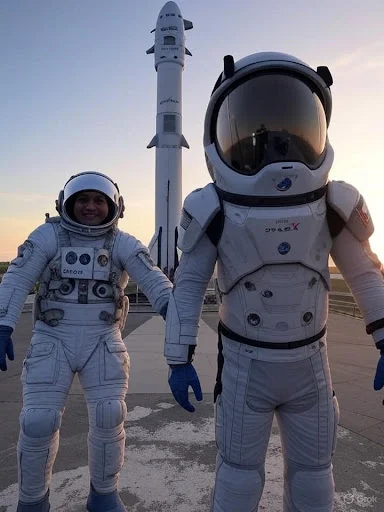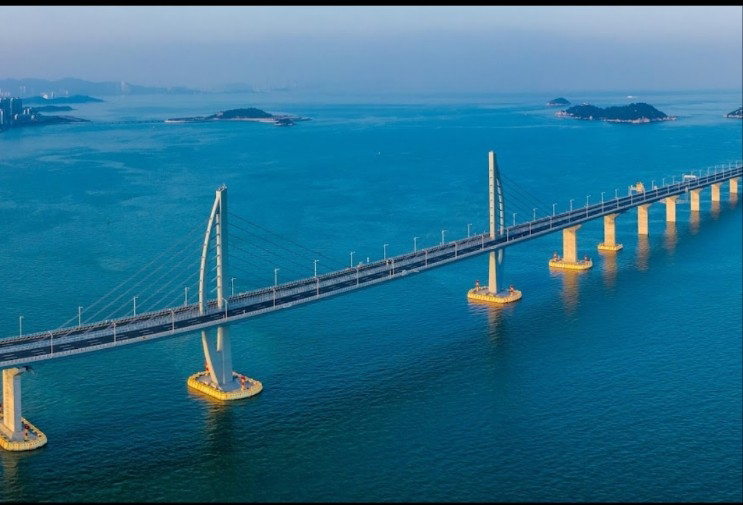Axiom-4 Mission: Shubhanshu Shukla’s Historic Journey to the ISS
Introduction : On June 25, 2025, India marked a significant milestone in its space exploration journey as Group Captain Shubhanshu Shukla, an Indian Air Force officer and astronaut, embarked on the Axiom-4 (Ax-4) mission to the International Space Station (ISS).
This mission, a collaborative effort between NASA, Axiom Space, and SpaceX, not only signifies India’s return to human spaceflight after a 41-year gap but also underscores the growing role of private space companies in advancing global space exploration. This blog post provides an in-depth exploration of the Axiom-4 mission, Shubhanshu Shukla’s role, the mission’s objectives, challenges faced, and its broader implications for India and the global space community.Background of the Axiom-4 MissionAxiom Mission 4 (Ax-4) is the fourth private astronaut mission organized by Axiom Space, a Houston-based private space company, in partnership with NASA and SpaceX. The mission aims to send a crew of four astronauts to the ISS for a 14-day stay, during which they will conduct over 60 scientific experiments and outreach activities. The mission is a landmark for India, Poland, and Hungary, as it represents the first government-sponsored human spaceflight for these nations in over four decades. For India, it is the first time an Indian astronaut, Shubhanshu Shukla, will visit the ISS, following in the footsteps of Wing Commander Rakesh Sharma, who traveled to the Soviet Salyut-7 space station in 1984.The Ax-4 mission is a testament to the growing collaboration between national space agencies and private entities. NASA has been encouraging private participation in human spaceflight to foster a thriving commercial space economy, while India’s involvement aligns with its ambitious Gaganyaan program, aimed at achieving independent crewed space missions by 2027.Shubhanshu Shukla: India’s GaganyatriGroup Captain Shubhanshu Shukla, born on October 10, 1985, in Lucknow, Uttar Pradesh, is a distinguished Indian Air Force pilot and one of the four astronaut-designates selected for ISRO’s Gaganyaan mission. As the mission pilot for Ax-4, Shukla is the first Indian to visit the ISS and the second Indian astronaut in space after Rakesh Sharma. His selection for this mission highlights India’s growing expertise in human spaceflight and its commitment to advancing scientific research in microgravity. Shukla’s training included rigorous preparation at NASA, SpaceX, and Axiom Space facilities in the United States, as well as international centers like the European Astronaut Centre in Cologne and JAXA’s Tsukuba Space Center in Japan.Shukla’s role as a pilot involves assisting mission commander Peggy Whitson, a former NASA astronaut with a record-breaking 675 days in space. His responsibilities include operating critical systems on the SpaceX Crew Dragon spacecraft and conducting experiments developed by ISRO and Indian institutions. These experiments cover a range of topics, from microgravity’s effects on human cognition to microbial adaptation and crop resilience.Mission DetailsThe Axiom-4 mission launched successfully on June 25, 2025, at 12:01 PM IST (2:31 AM EDT) from Launch Complex 39A at NASA’s Kennedy Space Center in Florida. The crew traveled aboard a brand-new SpaceX Crew Dragon spacecraft (C213), launched by a Falcon 9 Block 5 rocket. The spacecraft docked with the ISS on June 26, 2025, at approximately 4:30 PM IST. The mission’s duration is approximately 14 days, during which the crew will conduct extensive scientific research and outreach activities.The crew consists of:Commander Peggy Whitson (USA): A former NASA astronaut and Axiom Space’s director of human spaceflight.Pilot Shubhanshu Shukla (India): ISRO astronaut and Indian Air Force officer.Mission Specialist Sławosz Uznański-Wiśniewski (Poland): European Space Agency project astronaut.Mission Specialist Tibor Kapu (Hungary): Representing the Hungarian Space Office’s HUNOR program.The mission faced multiple delays due to technical issues, including a liquid oxygen (LOx) leak in the Falcon 9 rocket and a pressure anomaly in the ISS’s Zvezda service module. These challenges were addressed through rigorous testing and collaboration between NASA, Axiom Space, SpaceX, and ISRO, ensuring the safety of the crew.Scientific ObjectivesThe Ax-4 mission is the most research-intensive Axiom mission to date, with around 60 scientific studies and activities involving 31 countries. The experiments focus on microgravity research in human physiology, life sciences, material sciences, and Earth observation. Key experiments include:ISRO-led Studies: Seven experiments proposed by Indian researchers, including studies on microalgae growth, muscle regeneration, tardigrade resilience, and crop sprouting in space. These aim to enhance understanding of biological processes in microgravity and their applications on Earth.Cancer in LEO Project: Conducted in collaboration with the Sanford Stem Cell Institute, this study examines tumor organoids in microgravity to identify early cancer warning signs for better prediction and prevention.Translational Research Institute for Space Health (TRISH): Collecting data on human physiological and cognitive adaptation to microgravity to develop countermeasures for long-term space missions.Student Experiments: Projects designed by students from Brazil and Nigeria, facilitated by the Limitless Space Institute, include studies on colliding masses and pendulum properties in space.Additionally, the crew will engage in outreach activities, such as ISS Ham Radio sessions, to connect with students and educators worldwide, inspiring the next generation of explorers.Challenges and DelaysThe Axiom-4 mission faced significant hurdles, leading to multiple postponements:Initial Delays: Originally scheduled for May 29, 2025, the launch was delayed to June 8, then June 10 and 11, due to inclement weather and a liquid oxygen leak in the Falcon 9 rocket.Zvezda Module Issues: A pressure anomaly in the ISS’s Russian Zvezda service module, detected after repair efforts, prompted further delays to ensure the station’s readiness for additional crew members.Safety Prioritization: ISRO played a crucial role in advocating for thorough repairs, rejecting temporary solutions to ensure crew safety.These challenges highlight the complexities of human spaceflight and the importance of international collaboration to address technical issues.Significance for IndiaThe Ax-4 mission is a pivotal moment for India’s space program. Shubhanshu Shukla’s participation not only fulfills a commitment made during discussions between former US President Donald Trump and Indian Prime Minister Narendra Modi but also serves as a stepping stone for ISRO’s Gaganyaan program. Costing India approximately ₹550 crores for a seat on the mission, Ax-4 provides valuable experience for ISRO in crewed mission operations and microgravity research.Shukla’s journey carries the aspirations of 1.4 billion Indians, marking a proud moment as the nation re-enters human spaceflight after four decades. His mission patch, along with those of Poland’s Ignis and Hungary’s HUNOR programs, symbolizes national pride and international cooperation.Global ImpactThe Ax-4 mission underscores the growing role of private spaceflight in expanding access to low-Earth orbit. By involving astronauts from India, Poland, and Hungary, it fosters international collaboration and demonstrates the potential of commercial missions to advance scientific knowledge. The mission’s diverse research portfolio, involving 31 countries, highlights the global interest in microgravity research and its applications for Earth-based challenges, such as cancer prevention and agricultural resilience.ConclusionThe Axiom-4 mission, with Shubhanshu Shukla as its pilot, is a historic achievement for India and the global space community. Launched on June 25, 2025, from NASA’s Kennedy Space Center, the mission overcame significant technical challenges to deliver a crew to the ISS for a 14-day scientific endeavor. Shukla’s participation not only advances India’s space ambitions but also inspires future generations. As Axiom Space, NASA, and SpaceX continue to redefine human spaceflight, Ax-4 stands as a beacon of international collaboration and innovation, pushing the boundaries of what is possible in low-Earth orbit.





